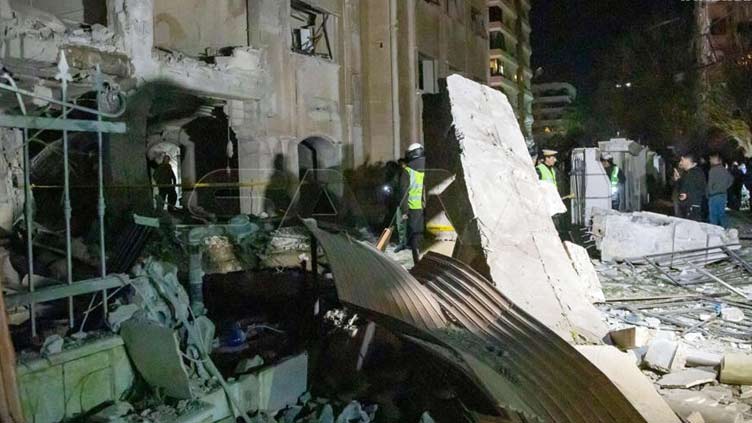More than dozen killed in Israel's 'deadliest attack' on Syrian capital

World
Israel has carried out hundreds of air strikes against its neighbour.
DAMASCUS (AFP) - An Israeli missile strike early Sunday killed 15 people and destroyed a building in a Damascus neighbourhood home to much of Syria's security apparatus, a war monitor said.
The Syrian Observatory for Human Rights said the strike, which hit close to an Iranian cultural centre, had killed 15 people including civilians.
"Israeli missiles targeted sites including Iranian militias and the Lebanese Hezbollah," it added.
During more than a decade of war in Syria, Israel has carried out hundreds of air strikes against its neighbour, primarily targeting positions of the country's army, Iranian forces and Hezbollah, allies of the Damascus regime.
But it rarely hits residential areas of the capital.
Sunday's strike hit in Kafr Sousa, home to senior officials, security agencies and intelligence headquarters.
"At 00:22 am (2222 GMT), the Israeli enemy carried out an aerial aggression from the direction of the occupied Golan Heights targeting several areas in Damascus and its vicinity, including residential neighbourhoods," Syria's defence ministry said in a statement.
In a preliminary toll, it said the strike killed five people, among them a soldier, and injured 15 civilians, some in a critical condition.
Israel's military rarely comments on its strikes against Syria, but regularly asserts that it will not let Iran extend its influence to Israel's borders.
'Deadliest Israeli attack'
Footage posted by state media showed that a 10-storey building was badly damaged in the attack, crushing the structure of its lower floors.
Large chunks of the building had been thrown into the street below, which was strewn with cladding and metal fittings.
The images showed several of the building's windows had been blown out.
"The strike on Sunday is the deadliest Israeli attack in the Syrian capital," said Rami Abdel Rahman, head of the Britain-based Observatory, which has a wide network of sources inside Syria.

